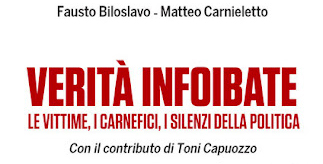Professione: Journalist
Luogo: Venezia-Giulia
Autore: Unknown
Chino Alessi ( Bologna, 1919 – Trieste, 12th October 1996)
Perhaps in no other Italian city the local newspaper has had such a strong connection with its community as happened in Trieste. A connection where “Il Piccolo”, Since Teodoro Mayer times, was not only a sort of media, rather an instrument to fight and the voice of the ideal hopes of the population.
A deep harmony of ideas and feelings carried on by Rino Alessi and successively his son Chino, who has successfully carried on the tradition but who has had his “swan song” during the popular revolt following the Treaty of Osimo, to which his “Il Piccolo” has given a significant support.
Chino Alessi, the last of the great national liberal julian journalist, is born in Bologna on 21st April 1919 from Rino and the bolognese Rosa Elide Spada; they immediately take him to Trieste, because his father, from March of that same year, has become Director of the newspaper “Il Piccolo”, position kept until July 1943.
Chino too, after having finished classical studies, dedicates to journalism, precisely as war correspondent for his father’s newspapers, first for the Western front and later in Africa, where he is decorated for valor on the field. Captured by the enemy army he spends six years in a prison camp in India. Back to Italy, in 1946 he resumes the job as journalist and becomes Director of the daily newspaper “Ultimissime” of Catania; this was another publishing initiative of his father, very brief however, that involves other Triestin men, like Domenico and Guido Botteri brothers.
In 1947 he marries Elisabetta La Rocca, who gives him four children, Irene, Marina, Rino e Paolo. After having closed the dispute about the property of “Il Piccolo”, which had already been transferred from Teodoro Mayer to Rino Alessi in July 1938,Chino becomes the Director from 11th January 1955, leading even “Il Piccolo-Sera” that ends the editing on 30th June 1966.
This period was marked by great tensions in an city deeply affected by the events following the World War II and that, with many difficulties is trying to build up a future less penalizing than the present appears; at the same time Trieste doesn’t want to lose that national spirit in the name of which many sacrifices have been done.For this reason there is a strong popular movement against Dusan Hrescak, a Slovenian socialist who joined the municipal council, and to whom are attributed articles pro-Titus written when he directed “Primorski Dnevik”, and to whom Alessi’s newspaper gives support. But even more determined is the position of “Il Piccolo” against “plan CIPE ( Interministerial committee for economic planning)” and the closure of “San Marco” shipyard.
In this story Alessi raises up his voice to denounce the fake jingoistic rhetoric used by Italian politicians to keep Trieste quiet, while they were removing, with the shipyards’ closure,vital energy from the city and canceling it from the sea.
The last period of Alessi’s direction at “Il Piccolo” during the Seventies, a time frame very difficult for an Italy in the throes of social and post-1968 terrorist seizures and it is a moment of tragic break up particularly for Trieste that watches blowing up another kind of contestation, the one against Osimo Treaty.
At the beginning of the Triestine protest, Alessi seems to have the main role as a mouthpiece of the citizens’ indignation, even more than Manlio Cecovini, who later will become the real leader.
His editorials – starting right from the one of 26th September 1975, that Cecovini remembers like “an unforgettable trumpet blast”, three days after the revelation of “Il Giornale d’Italia” about hidden negotiations between Italy and Yugoslavia- the daily room given by the newspaper to the the opinions of the opponents to Osimo Treaty, his being a binding force of the different actions opposing the “Z.F.I.C.” laid down in the Treaty; all these factors encourage the rise of of a civic, political and of conscience movement- the Lista for Trieste- able to give concrete possibilities to the Triestine revolt, that would otherwise have found only in the M.S.I.(Italian Social Movement) , with all the negative consequences that its exclusion from the “constitutional arc” would have caused, the opponent to the Treaty with Yugoslavia.
However, in the same years the exponential and inexorable increase of expenses of a daily newspaper push him to sell part of his property first to Agnelli Fiat Group, in 1973, and three years later even to Rizzoli publishing group, that the following year also buy what remain of Alessi’s possession.
He leaves therefore the management of “Il Piccolo” in 1977, with a great regret of Trieste citizens, aware of losing their voice, conscious that the almost monopolistic action on the national press implemented by Rizzoli Group would have certainly changed the newspaper’s concept, as in fact it is with Ferruccio Borio, his successor.
Alessi’s civil commitment however, goes on through his collaboration with other press organs and above all taking part to the uprising process of the local television broadcasting, of which he is one of the main characters setting up, with other people, “Telequattro”: in its schedule he includes some very successful political columns,- The Mayor talks back for example- that are the only information spaces by which the “Lista for Trieste” can make known its action of local leadership.
Like many other Triestine famous personalities for Alessi too, literature becomes a sort refuge where quieten tensions and conflicts and where to express its deeper nature; for this reason, beyond the professional sphere, he dedicates to narrative, publishing Un ombrello di filo spinato – “A barbed wire umbrella” (1972) and Debiti d’amore – “Love dues” (1975), while L’intimo nemico – “ The close enemy” (1996) ,a sharp reflection on the illness taking him to death, comes out after his passing, occured in Trieste on 12th October 1996.
 Language
Language Italian
Italian
